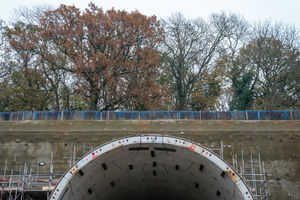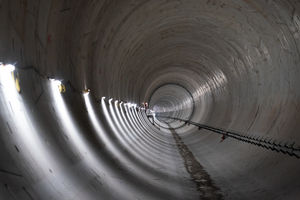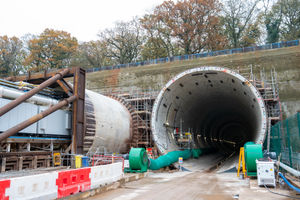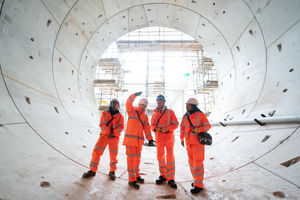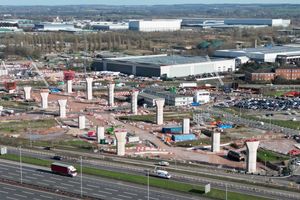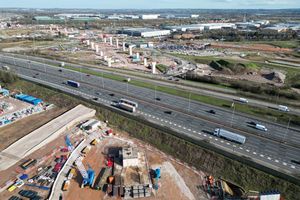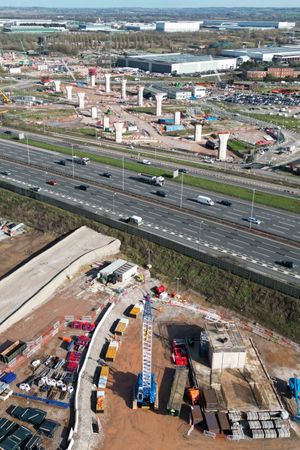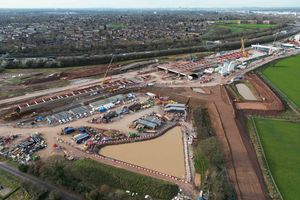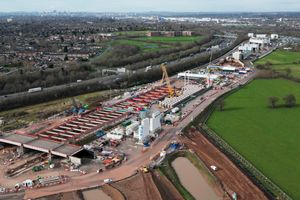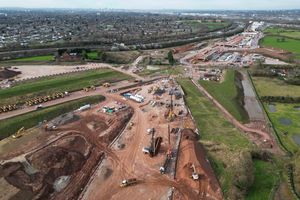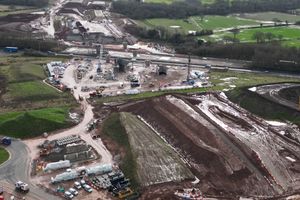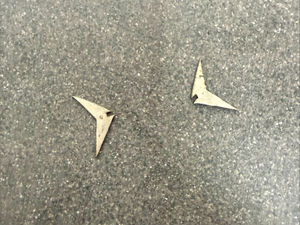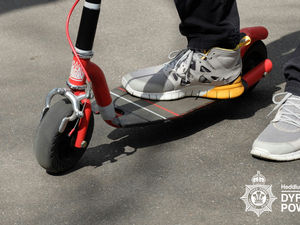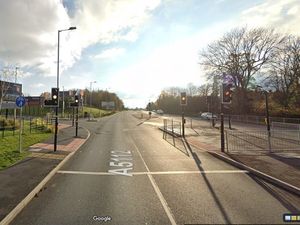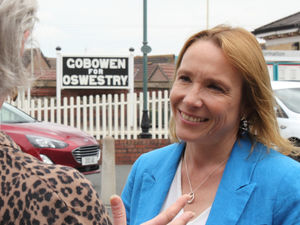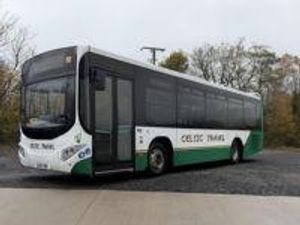13 pictures reveal incredible scale of HS2 project in the West Midlands
New images reveal the scale of the HS2 project as it makes its way into the West Midlands.
Drone footage reveals giant rows of pillars that are designed to take the new railway over the M42 motorway at Water Orton, near Birmingham.
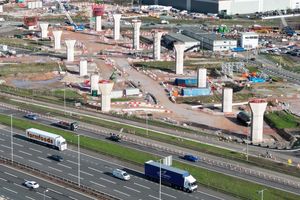
Others reveal the huge brown scars that the project has brought to the landscape in the region.
Thousands of workers are involved in the construction of the line, which involves scores of bridges and a number of significant tunnels.
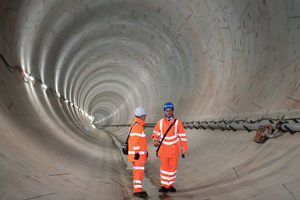
Work has been completed on a one-mile tunnel under ancient woodland near Southam, Stratford-on-Avon, Warwickshire.
And now work is in full swing to bring the line into Birmingham from the east, through a large area of Staffordshire countryside.
The estimated cost of the HS2 line from London to Birmingham has ballooned to as much as £66 billion, the scheme’s executive chair told MPs earlier this month.
Jon Thompson told the transport select committee that the current estimate for the first phase of the line could add “between £8bn and £10bn” to the current top-end estimate of £56.6bn.
The discrepancy in estimates is because the current £56.6bn price tag the government and HS2 have been quoting is in 2019 prices and does not reflect the jump in inflation after the coronavirus pandemic and Russia’s invasion of Ukraine.
He spoke only months after Rishi Sunak announced at the Conservative party conference in October that he would be axing the planned HS2 line north of Birmingham, citing cost concerns as the driving factor.
The cost of the high-speed rail project has risen repeatedly in the last decade, with the line from London to Birmingham forecast to cost £19.4bn in 2013.
West Midlands' Tory mayor Andy Street bitterly opposed the axing of the northern leg of the line and he recently joined forces with Manchester's Labour mayor Andy Burnham to push forward alternative and cheaper plans for the scrapped section, warning that “to do nothing is not an option”.
They have put forward three options, saying their largely privately funded alternatives would cost “considerably less” than HS2.
The mayors have created a consortium chaired by Sir David Higgins, a former chair of HS2, which involves private engineering and finance companies including Arup, EY, Skanska and Mace.
One option is to build a segregated line such as the one planned for HS2 but with lower maximum speeds, reducing costs. The completely new line option would be roughly the same line as the scrapped HS2 section, Mr Street said.
